Welcome to the ultimate guide on forex trading courses. In this comprehensive article, we will explore the world of forex trading courses and provide you with valuable insights into how they can help you become a successful forex trader. Whether you are a beginner or an experienced trader looking to enhance your skills, this guide will serve as your roadmap to finding the right course and developing a solid foundation in forex trading.
What Are Forex Trading Courses?
Forex trading courses are educational programs designed to teach individuals how to trade in the foreign exchange market. These courses cover a wide range of topics, from the basics of forex trading to advanced trading strategies. They are offered by various educational institutions, online platforms, and trading academies, catering to traders of all skill levels.
The Benefits of Forex Trading Courses
Taking a forex trading course offers numerous benefits for aspiring traders. Here are some key advantages:
Comprehensive Education: Forex trading courses provide a structured and comprehensive education on the various aspects of forex trading, ensuring that you have a solid understanding of the market, trading techniques, and risk management.
Mentorship and Guidance: Many forex trading courses offer mentorship programs, allowing you to learn directly from experienced traders. This guidance can significantly accelerate your learning process and help you avoid common pitfalls.
Practical Trading Experience: Some courses offer simulated trading environments or demo accounts where you can practice trading without risking real money. This hands-on experience is invaluable in building your confidence and honing your trading skills.
Networking Opportunities: Joining a forex trading course opens doors to a community of like-minded individuals. Networking with fellow traders can provide support, insights, and even potential collaboration opportunities.
How to Choose the Right Course
Selecting the right forex trading course is crucial for your learning journey. Consider the following factors when making your decision:
Course Content: Evaluate the curriculum and ensure that the course covers the topics and skills you want to learn. Look for courses that provide a balance between theory and practical application.
Reputation and Reviews: Research the reputation of the course provider and read reviews from previous students. Check if the course has a track record of delivering quality education and positive results.
Instructor Expertise: Assess the credentials and experience of the instructors. Look for courses taught by industry professionals or successful traders with a proven track record.
Learning Format: Determine if the course is offered online, in-person, or through a combination of both. Consider your preferred learning style and availability when choosing the format that suits you best.
Understanding Basic Forex Concepts
Before diving into advanced trading strategies, it's essential to have a solid understanding of basic forex concepts. Here are some fundamental terms you should be familiar with:
Forex Market: Learn about the structure and functioning of the forex market, including the major currency pairs, liquidity, and trading sessions.
Currency Pairs: Understand how currency pairs are quoted, the base and quote currency, and how to interpret exchange rates.
Pips and Lots: Gain knowledge of pips, which represent the smallest price movement in a currency pair, and lots, which determine the size of your trading position.
Leverage and Margin: Explore the concept of leverage and margin and how they can amplify both profits and losses in forex trading.
Technical Analysis
Technical analysis is a crucial skill for forex traders, as it involves studying historical price data and identifying patterns to make informed trading decisions. Some key topics to cover in a technical analysis course include:
Chart Types and Patterns: Learn about different types of charts, such as line charts, bar charts, and candlestick charts. Understand common chart patterns like support and resistance, trendlines, and chart indicators.
Indicators and Oscillators: Familiarize yourself with popular technical indicators and oscillators, such as moving averages, relative strength index (RSI), and stochastic oscillator.
Japanese Candlestick Patterns: Study the various candlestick patterns and their interpretations, including doji, hammer, engulfing patterns, and more.
Fibonacci Retracement and Extension: Discover how to use Fibonacci retracement and extension levels to identify potential areas of support and resistance.
Fundamental Analysis
Fundamental analysis involves evaluating economic, social, and political factors that can impact currency values. Here are some essential concepts covered in a fundamental analysis course:
Economic Indicators: Understand how economic indicators, such as GDP, inflation rates, and interest rates, influence currency valuations.
News Analysis: Learn how to analyze and interpret news events, including central bank announcements, geopolitical developments, and economic reports.
Interest Rate Analysis: Explore the relationship between interest rates and currency values and how changes in interest rates can impact forex markets.
Geopolitical Analysis: Gain insights into how political events, such as elections or policy changes, can affect currency values and global markets.
Risk Management
Proper risk management is crucial for long-term success in forex trading. A risk management course should cover the following topics:
Risk Assessment: Understand how to assess and quantify the risk associated with each trade. Learn about concepts like stop-loss orders and risk-reward ratios.
Position Sizing: Explore different position sizing techniques to determine the appropriate lot size for each trade based on your risk tolerance and account size.
Money Management: Learn how to manage your trading capital effectively, including setting realistic profit targets, determining maximum loss limits, and diversifying your portfolio.
Emotional Control: Develop strategies to manage emotions and avoid impulsive trading decisions that can lead to excessive risk-taking.
Developing a Trading Strategy
A solid trading strategy is the foundation of successful forex trading. A course on developing a trading strategy should cover the following aspects:
Trading Styles: Understand different trading styles, such as day trading, swing trading, and position trading. Identify the style that aligns with your personality and time commitment.
Technical Indicators and Tools: Explore a wide range of technical indicators, tools, and chart patterns to incorporate into your trading strategy.
Risk-Reward Analysis: Learn how to analyze potential trade setups and assess the risk-reward ratio to make informed trading decisions.
Backtesting and Optimization: Discover how to backtest your trading strategy using historical data and optimize it for better performance.
Types of Forex Trading Strategies
Forex trading strategies can be broadly categorized into the following types:
Trend-Following Strategies: These strategies aim to identify and capitalize on market trends. Examples include moving average crossovers and trendline breakouts.
Breakout Strategies: Breakout strategies involve trading the price breakouts of key support or resistance levels.
Range Trading Strategies: Range trading strategies focus on identifying and trading within price ranges or consolidation periods.
Carry Trading: Carry trading involves profiting from the interest rate differential between two currencies.
Forex Trading Platforms
A forex trading platform is the software used to execute trades in the forex market. Some popular trading platforms include:
MetaTrader 4 (MT4): MT4 is a widely used platform known for its user-friendly interface, advanced charting capabilities, and support for automated trading.
MetaTrader 5 (MT5): MT5 offers similar features to MT4 but with additional asset classes and improved performance.
cTrader: cTrader is a powerful trading platform known for its lightning-fast execution speed and advanced order types.
TradingView: While not a standalone trading platform, TradingView is a popular charting and analysis tool used by many forex traders.
Demo Trading Accounts
Demo trading accounts allow you to practice trading in a simulated environment without risking real money. They offer a risk-free way to test your trading strategies and become familiar with the trading platform. Some key points to consider:
Opening a Demo Account: Learn how to open a demo trading account with your chosen broker or trading platform.
Simulating Real Market Conditions: Treat your demo account as if it were a real trading account. Practice proper risk management and execute trades based on your trading strategy.
Evaluating Performance: Monitor and evaluate your performance in the demo account to identify areas for improvement and fine-tune your trading strategy.
Transitioning to Live Trading: Once you have gained sufficient confidence and consistency in your demo trading, you can consider transitioning to live trading with real money.
Forex Trading Psychology
Mastering the psychological aspects of trading is essential for long-term success. A course on forex trading psychology may cover the following topics:
Emotion Management: Learn how to control emotions such as fear, greed, and impatience that can negatively impact trading decisions.
Discipline and Patience: Understand the importance of discipline and patience in following your trading strategy and sticking to your predefined rules.
Developing a Trading Routine: Establish a structured trading routine that includes pre-trading rituals, post-trade analysis, and continuous learning.
Dealing with Losses: Learn strategies to cope with losses and maintain a positive mindset during challenging periods.
Common Mistakes to Avoid
Avoiding common trading mistakes can save you from significant losses and setbacks. Here are some common pitfalls to watch out for:
Overtrading: Resist the temptation to trade excessively. Focus on quality setups that align with your trading strategy.
Lack of Risk Management: Neglecting proper risk management can result in catastrophic losses. Always use stop-loss orders and manage your risk effectively.
Chasing the Market: Avoid entering trades based on impulsive reactions to sudden price movements. Stick to your trading plan and avoid chasing the market.
Neglecting Emotional Control: Emotional decision-making can lead to irrational trades. Stay disciplined and follow your trading strategy regardless of market fluctuations.
Forex Trading Tips for Beginners
If you are new to forex trading, consider the following tips to start off on the right foot:
Educate Yourself: Invest time in learning the fundamentals of forex trading through courses, books, online resources, and educational platforms.
Start with a Demo Account: Practice trading in a demo account to gain experience and confidence before risking real money.
Focus on a Few Currency Pairs: Instead of trying to trade every currency pair, concentrate on a few major pairs and become familiar with their price patterns and behavior.
Keep a Trading Journal: Maintain a trading journal to track your trades, record your thoughts, and analyze your performance for continuous improvement.
Advanced Forex Trading Techniques
For experienced traders looking to enhance their skills, advanced forex trading techniques can provide an edge. Some advanced techniques to explore include:
Harmonic Patterns: Harmonic patterns, such as the Gartley pattern or the Butterfly pattern, can help identify potential reversals in price.
Elliott Wave Theory: Study the Elliott Wave Theory, which suggests that markets move in predictable wave patterns.
Seasonality Analysis: Analyze seasonal patterns and trends in the forex market to identify potential trading opportunities.
Algorithmic Trading: Explore the world of algorithmic trading, where computer programs execute trades based on predefined rules and algorithms.
Trading Journals
Keeping a trading journal is an essential practice for traders of all levels. A trading journal helps you track your trades, analyze your performance, and make data-driven improvements. Some key points to cover:
What to Include in a Trading Journal: Identify the key data points to record in your trading journal, such as entry and exit points, trade duration, profit or loss, and trade rationale.
Analyzing Trade Patterns: Regularly review your trading journal to identify patterns and trends in your trading performance. Look for areas of improvement and adjust your trading strategy accordingly.
Emotional Insights: Use your trading journal to reflect on your emotional state during each trade. This can help you identify emotional biases and make necessary adjustments to your mindset.
Learn from Mistakes: Embrace mistakes as learning opportunities. Analyze losing trades to understand what went wrong and how you can avoid similar mistakes in the future.
Forex Trading Signals
Forex trading signals are alerts or recommendations provided by professional traders or automated systems. These signals can assist traders in identifying potential trade setups. Here's what you need to know:
Types of Trading Signals: Understand the different types of trading signals, including technical signals generated by indicators and fundamental signals based on economic news.
Signal Providers: Research reputable signal providers and consider their track record, accuracy, and transparency.
Manual vs. Automated Signals: Decide whether you want to follow manual signals provided by expert traders or automated signals generated by algorithms.
Evaluating and Implementing Signals: Learn how to evaluate and implement trading signals in your own trading strategy. Avoid blindly following signals without proper analysis.
Forex Trading Education Resources
In addition to forex trading courses, there are various educational resources available to enhance your trading knowledge. Some valuable resources include:
Books: Explore a wide range of forex trading books written by industry experts to deepen your understanding of different trading concepts and strategies.
Online Forums and Communities: Engage with fellow traders on online forums and communities to share ideas, ask questions, and gain insights from experienced traders.
Webinars and Workshops: Attend webinars and workshops conducted by trading experts to learn new strategies and stay updated with market trends.
Educational Websites and Blogs: Follow reputable educational websites and blogs that provide valuable articles, tutorials, and market analysis related to forex trading.
How to Stay Updated in the Forex Market
Staying informed about market developments and news is crucial for successful forex trading. Here are some tips to stay updated:
Economic Calendars: Utilize economic calendars to keep track of key economic events, such as interest rate decisions, GDP releases, and employment reports.
Financial News Websites: Regularly visit financial news websites that provide real-time updates on currency markets, economic indicators, and geopolitical developments.
Social Media: Follow influential traders, financial news outlets, and reputable forex-related accounts on social media platforms to receive timely market insights and updates.
Analysis and Research Reports: Subscribe to research reports and analysis from reliable sources to gain expert opinions and in-depth market analysis.
Conclusion
Forex trading courses provide valuable education and insights for traders at all levels. Whether you're a beginner or an experienced trader looking to refine your skills, these courses cover a wide range of topics, from basic concepts to advanced trading techniques. By investing in your forex trading education, developing a solid trading strategy, and continuously improving your skills, you can increase your chances of success in the dynamic and challenging world of forex trading.

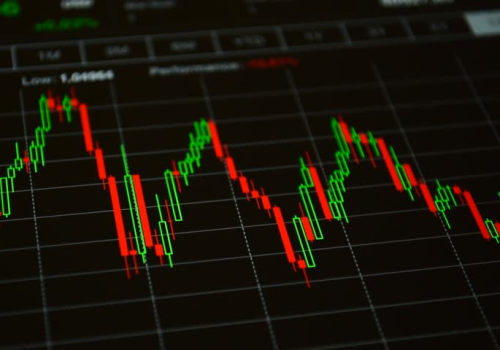
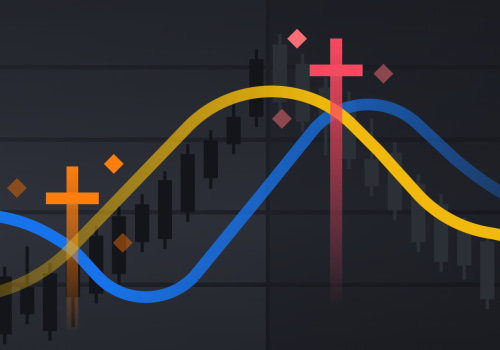

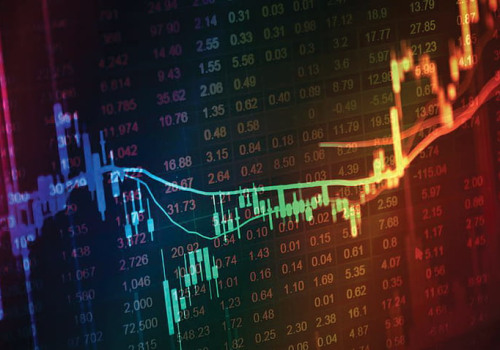




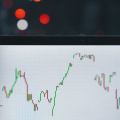
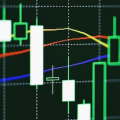

Leave Reply